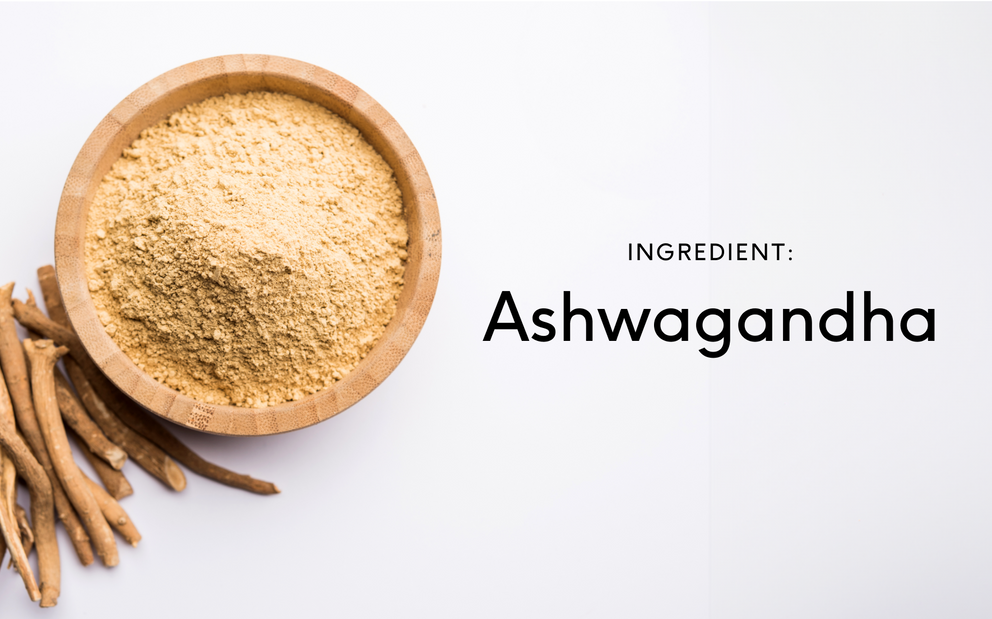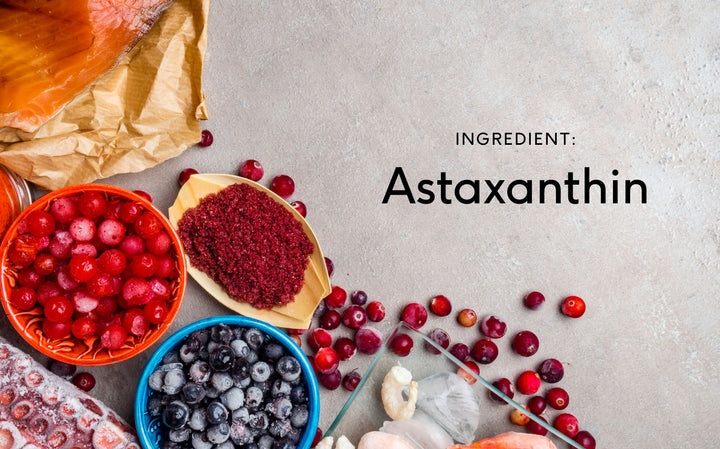Learn About Ashwagandha in 5 Minutes
Table of contents

What is ashwagandha?
Scientifically known as Withania somnifera, ashwagandha is a flowering plant that’s native to North Africa. This plant made its way to India centuries ago, and it remains a critical component of ayurvedic medicine. More studies need to be done to get to the bottom of ashwagandha’s potential medical benefits, but some research indicates that this natural herb might have cardiovascular, antioxidant, and mood-boosting benefits.
Is ashwagandha water-soluble or fat-soluble?
Ashwagandha contains both water-soluble and fat-soluble components. As a result, ayurvedic medicine calls for pairing this substance with milk. Vegans can pair Withania somnifera with other mixes of fat and water such as coconut milk or almond milk.
Where can ashwagandha be found naturally? Common sources of ashwagandha:
The only source of the unique compounds in ashwagandha is the root of this plant, which is usually dried and powdered prior to consumption.
What is the recommended daily value for ashwagandha?
Neither ashwagandha nor the compounds it contains have been recognised as essential nutrients, so there is no nutrient reference value (NRV) for this substance.
Can you absorb enough ashwagandha from food?
Withania somnifera is not present in any foods other than the powdered form of its roots, so you cannot absorb any ashwagandha from a normal diet.
Why is ashwagandha necessary for your body?
Ashwagandha contains various compounds that may relieve psychological stress, assist with cardiovascular functioning, and reduce inflammation and oxidative stress. Each of these issues can negatively impact your health, indicating that substances like ashwagandha may be necessary for optimal well-being.
Functions of ashwagandha
- May reduce stress, depression, and anxiety: Some research indicates that ashwagandha may reduce levels of the stress hormone cortisol in your body, and other clinical studies support ashwagandha’s utility as a potential alleviator of depression and anxiety.
- May reduce blood sugar and lower cholesterol: Both lab and clinical studies indicate that ashwagandha may improve insulin secretion and insulin sensitivity, and this substance may also reduce cholesterol and triglycerides.
- May reduce inflammation and oxidative stress: Research indicates that ashwagandha may increase the activity of immune cells that fight inflammation, and this substance also appears to exert direct antioxidant effects.
Ashwagandha is thought to have both antibacterial and antimicrobial properties which support the skin against infections and acne. Feel Beauty Probiotic+ includes 10mg of Aswhagandha, perfect for your everyday glow.
When should you take ashwagandha?
Since Withania somnifera is not an essential nutrient, it is impossible to become deficient in this substance. At the same time, not using ashwagandha will make you lose out on this substance’s potential health benefits.
How long do you need to take ashwagandha to start experiencing its benefits?
Some of the water-soluble compounds in ashwagandha will take effect almost immediately and the fat-soluble components of this root powder will take longer to absorb.
Consistency is key and our research recommends taking your Feel supplements for at least 3 months to allow your body to adjust and provide you with the desired benefits.
How long does it take for your body to digest/absorb ashwagandha?
The rate of absorption of the compounds in ashwagandha varies depending on whether they are water-soluble or fat-soluble.
How long does ashwagandha stay in your body after you take it?
The water-soluble compounds in ashwagandha generally leave your body within 2-3 days, but the fat-soluble compounds in this root powder may stay in your system for up to a month.
Is ashwagandha an antioxidant?
Some studies indicate that Withania somnifera may have direct antioxidant effects, but more research needs to be done to definitively determine this substance’s antioxidant properties.
Can you overdose on ashwagandha? What are the effects?
If you consume an unreasonable amount of ashwagandha, you may experience unpleasant effects like nausea and vomiting. When consumed in reasonable quantities, however, ashwagandha is not known to cause any gastric distress.
Does ashwagandha dissolve, flush out, or build up in the body?
The water-soluble compounds in ashwagandha generally dissolve quickly in your digestive system, and any leftover compounds are flushed out over the course of 2-3 days. The oil-based compounds in this root powder, however, can build up and remain in your system for around 30 days.
Can you take ashwagandha during a diet?
Ashwagandha is a vegan, gluten-free substance that does not conflict with any common dietary restrictions. On the contrary, this ancient Indian healing herb is a common component of many ayurvedic dietary systems.
Are there synthetic forms of ashwagandha?
Withania somnifera contains a large number of unique compounds. At present, we do not know of any efforts to synthesise these compounds.
Absorption rate of synthetic ashwagandha
There is no information currently available on the potential absorption rates of synthesised forms of the constituent compounds of ashwagandha.
Why might natural forms of ashwagandha be better?
Ashwagandha is currently only available in its natural form.
How to take ashwagandha
Ashwagandha is usually ingested orally in its dried and powdered form.
Ashwagandha trends in medicine
In 2020, Indian researchers conducted a clinical study on the beneficial effects of ashwagandha in elderly people. The research team investigated the impact of ashwagandha on well-being and sleep health compared to a placebo, and the study lasted 12 weeks. Within a few weeks of observing the effects of this compound, the researchers noted that participants in the ashwagandha group exhibited a “significant increase in the quality of sleep and mental alertness.”
An American study from 2019 bore similar results. Using the Hamilton Anxiety Rating Scale (HAM-A) guidelines and the DASS-21 scale, the researchers observed the effects of ashwagandha in 60 healthy adults over the course of around eight weeks. The facilitators of the study noted marked improvements in participants in the ashwagandha group.
Sources
1. Efficacy and Tolerability of Ashwagandha Root Extract in the Elderly for Improvement of General Well-being and Sleep: A Prospective, Randomized, Double-blind, Placebo-controlled Study
2. An investigation into the stress-relieving and pharmacological actions of an ashwagandha (Withania somnifera) extract
3. A Prospective, Randomized Double-Blind, Placebo-Controlled Study of Safety and Efficacy of a High-Concentration Full-Spectrum Extract of Ashwagandha Root in Reducing Stress and Anxiety in Adults
4. An Alternative Treatment for Anxiety: A Systematic Review of Human Trial Results Reported for the Ayurvedic Herb Ashwagandha (Withania somnifera)
5. Examining the effect of Withania somnifera supplementation on muscle strength and recovery: a randomized controlled trial
6. Efficacy and Safety of Ashwagandha (Withania somnifera) Root Extract in Improving Sexual Function in Women: A Pilot Study










































 Back
Back




